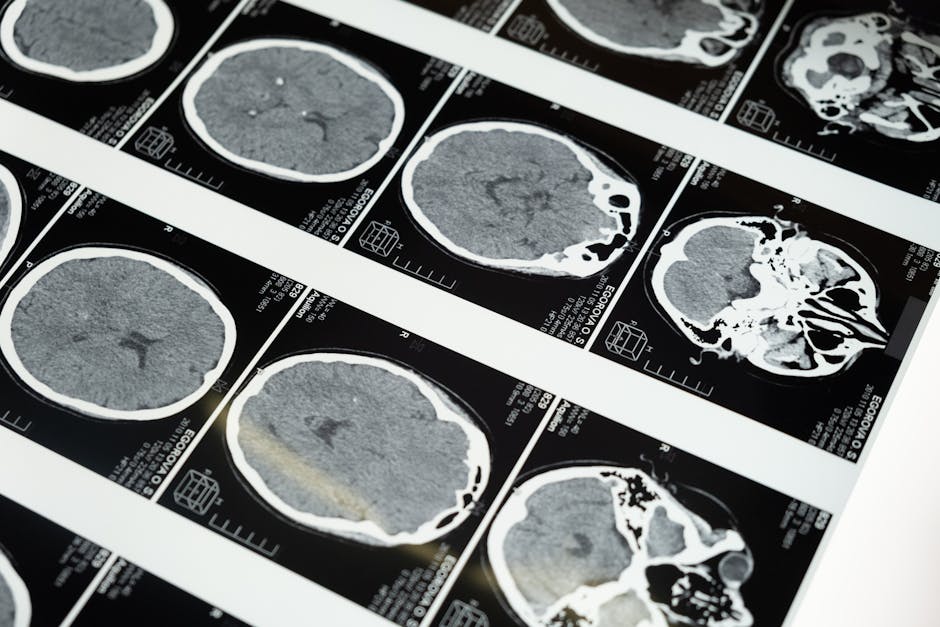Cerebral Folate Deficiency: Understanding the Neurological Impact of Low Folate
Cerebral folate deficiency (CFD) is a serious neurological condition stemming from a lack of folate, specifically in the brain. Unlike general folate deficiency, which manifests in anemia and other systemic issues, CFD primarily affects the central nervous system, leading to a range of debilitating symptoms. Understanding the causes, symptoms, diagnosis, and treatment of CFD is crucial for early intervention and improved patient outcomes. This comprehensive guide delves into the intricacies of this often-overlooked neurological disorder.
What is Cerebral Folate Deficiency (CFD)?
CFD is characterized by low levels of folate within the cerebrospinal fluid (CSF), the fluid that surrounds and protects the brain and spinal cord. This deficiency doesn’t necessarily reflect overall low folate levels in the blood. Even with adequate circulating folate, the brain may still be deprived due to impaired transport or utilization of folate within the central nervous system. This means that standard blood tests for folate may not always reveal a CFD diagnosis. Consequently, a more nuanced approach is necessary for accurate diagnosis.
Causes of Cerebral Folate Deficiency
The exact causes of CFD are often complex and not fully understood in every case. However, several factors have been identified as contributing to this deficiency:

- Genetic Factors: Certain genetic mutations can impair the transport of folate into the brain or its metabolism within the central nervous system. These genetic predispositions can significantly increase the risk of developing CFD.
- Dietary Deficiencies: While not the sole cause, inadequate folate intake through diet plays a significant role. Individuals consuming diets low in folate-rich foods are more susceptible.
- Malabsorption Syndromes: Conditions that interfere with the absorption of nutrients in the gut, such as celiac disease or Crohn’s disease, can lead to folate deficiency and potentially CFD.
- Medications: Certain medications, such as anticonvulsants (used to treat epilepsy), methotrexate (a chemotherapy drug), and some antibiotics, can interfere with folate metabolism and contribute to CFD.
- Alcohol Abuse: Chronic alcohol consumption can impair folate absorption and metabolism, increasing the risk of CFD.
- Other Neurological Conditions: Some neurological disorders are associated with CFD, suggesting a potential link between brain dysfunction and folate metabolism.
Symptoms of Cerebral Folate Deficiency
The symptoms of CFD are highly variable and depend on the severity of the deficiency. Early symptoms can be subtle and easily mistaken for other conditions, leading to delays in diagnosis. Some common symptoms include:

- Psychiatric Symptoms: Depression, anxiety, psychosis, and cognitive impairment are frequently reported.
- Neurological Symptoms: Gait disturbances, tremors, ataxia (lack of coordination), spasticity (muscle stiffness), and dysarthria (difficulty speaking) can occur.
- Cognitive Impairment: Memory loss, difficulty concentrating, and executive dysfunction (problems with planning and decision-making) are common.
- Movement Disorders: Chorea (involuntary jerky movements) and dystonia (sustained muscle contractions) can be present in severe cases.
- Peripheral Neuropathy: Numbness, tingling, and pain in the extremities are possible.
It’s crucial to note that the presence of these symptoms does not automatically equate to CFD. A thorough evaluation by a healthcare professional is necessary for accurate diagnosis.
Diagnosis of Cerebral Folate Deficiency
Diagnosing CFD requires a multi-faceted approach. Simple blood tests for folate levels may not be sufficient, as they may not accurately reflect folate levels in the CSF. The following tests are usually employed:
- Detailed Medical History and Neurological Examination: A comprehensive review of symptoms, medical history, and family history is essential.
- Lumbar Puncture (Spinal Tap): This procedure involves collecting CSF to measure folate levels directly within the cerebrospinal fluid. Low CSF folate levels are a key indicator of CFD.
- Neuroimaging: MRI or CT scans can rule out other neurological conditions and may reveal abnormalities associated with CFD.
- Genetic Testing: Genetic testing may be conducted to identify any underlying genetic mutations that might be contributing to the deficiency.
- Metabolic Tests: Certain metabolic tests might be ordered to evaluate overall nutrient status and identify any potential metabolic abnormalities.
Treatment of Cerebral Folate Deficiency
The primary treatment for CFD involves supplementation with high-dose folic acid, often administered intravenously initially, and subsequently orally. The goal is to restore folate levels in the CSF and alleviate symptoms. Treatment response can vary considerably among individuals. Some patients experience significant improvement, while others may have a less dramatic response. Close monitoring and adjustment of the treatment regimen are crucial. The specific dosage and route of administration should be determined by a healthcare professional based on individual needs and response.
Living with Cerebral Folate Deficiency
Managing CFD is a long-term process that often requires ongoing medical supervision. Patients should work closely with their healthcare team to monitor their folate levels, adjust medication as needed, and manage any associated symptoms. Lifestyle modifications, such as following a balanced diet rich in folate and abstaining from alcohol, can be beneficial. Support groups and counseling can also provide valuable emotional and practical support for individuals and their families coping with this condition.

Prevention of Cerebral Folate Deficiency
While not all cases of CFD are preventable, certain measures can reduce the risk:
- Maintain a Healthy Diet: Consume a diet rich in folate-rich foods, such as leafy green vegetables, legumes, and citrus fruits.
- Consider Folic Acid Supplementation: Consult with a healthcare professional to discuss the potential benefits of folic acid supplementation, particularly during pregnancy and if you have risk factors for folate deficiency.
- Monitor Medications: Be aware of any medications you are taking that might interfere with folate metabolism.
- Avoid Excessive Alcohol Consumption: Limit or avoid alcohol consumption to minimize its impact on folate metabolism.
Early diagnosis and treatment are critical for improving the prognosis of CFD. If you experience any of the symptoms discussed above, particularly if they persist or worsen, seek immediate medical attention. Prompt diagnosis and appropriate management can significantly improve the quality of life for individuals affected by this condition.

